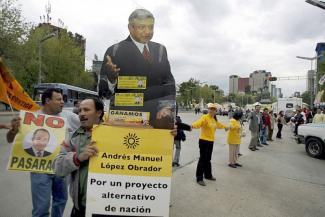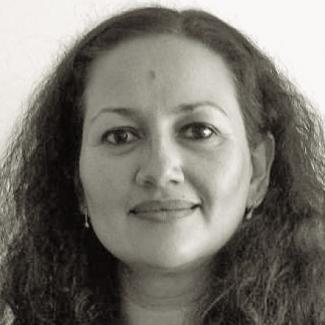Elections
Mexican power struggle

This is the 3rd time that AMLO is running for president. The candidate of the party Morena (Movimiento de Regeneración Nacional) is 64 years old and his hair has long greyed. In all these years, he has not managed to become a good orator. He is prone to long breaks and suddenly raising his voice to emphasise one of his well-known catchphrases, which mostly bemoan “the Mafia of power” or express well-founded doubts about Mexico’s electoral process.
His supporters are a colourful coalition. Some of them, including leftist intellectuals, artists and scholars, have always seen him as an advocate of the low- and medium-income masses. In recent times, his message has also been resonating among those who are disappointed in the current president and his predecessor, worrying that the country is stuck in a downward spiral of violence. Finally, there are the opportunists who always want to be on the side of the winner.
According to opinion polls, AMLO is currently more than 10 percentage points ahead of his closest rival Ricardo Anaya, the candidate of the right-wing party PAN. José Antonio Meade, whose party PRI is currently in power, is weighed down by President Enrique Peña Nieto’s bad reputation which has suffered because of violence and corruption.
Critics argue that AMLO is a populist who does not deserve trust. It is true that he does not spell out how exactly he wants to deliver on his vast campaign in pledges in practical terms. In contrast to right-wing populists, like US President Donald Trump for example, however, he does not agitate against minorities. Moreover, he does not only attack elites rhetorically, but actually questions their privileged position.
This is not the first time that AMLO is leading in the polls. In 2006, he was the frontrunner too. Back then, the PAN promoted its candidate Felipe Calderón with advertising that likened the leftist leader to Hugo Chávez, then Venezuela’s president. The Calderón campaign warned of potentially authoritarian and socialist governance which would hurt the economy. AMLO was declared to be “a danger for Mexico”.
In the end, Calderón won the election, though how it was administered remained controversial. Huge rallies demanded a recount, but that didn’t happen. AMLO himself was among the protesters. Once in office, Calderón deployed the military rather than only the police in the fight against drug gangs, and violence escalated terribly.
Twelve years and 234,000 violent deaths later, the people will vote again. This time it is mainly the PRI which is attacking López Obrador. However, the rhetoric of a “danger for Mexico” has become less credible in view of the violence that marks many people’s daily lives, the growing number of disappeared persons and the shrinking space for civic engagement. The PRI is relying on other means too, linking social-protection programmes to conditions, for example, or buying votes, as allegedly happened in previous elections.
Perhaps the attacks on AMLO will succeed, but so far that is not evident – neither in opinion polls, nor on social media, nor in general public support. The Morena candidate has proven his strength several times. The most impressive example was perhaps the successful Twitter campaign #UniversitariosconAMLO (University people with AMLO) and recently #AMLOmania, where people are openly showing their support.
One of his most controversial proposals is an amnesty for certain groups of offenders – but many see it as an alternative approach to start rebuilding peace and tackling social degradation.
The established political forces are currently asking AMLO a highly relevant question: will he accept the election results if he loses? The way things look today, this is what Mexican voters may soon ask the establishment.
Virginia Mercado is an academic at the Universidad Autónoma del Estado de México (UAEM) and teaches peace and development studies.
virmercado@yahoo.com.mx










